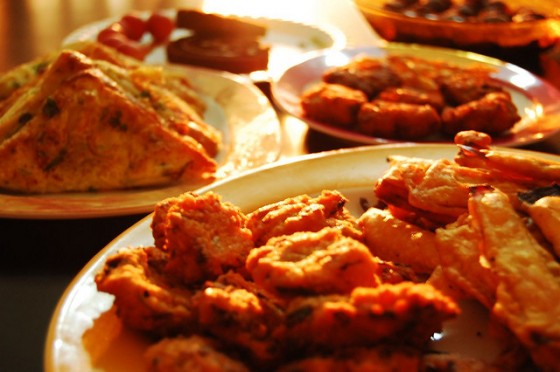
“People in this part of the world (the Middle East) tend to show off the amount of food they have on their Iftar (the evening meal when Muslims break their fast) table,” Aman said.
“There are more than six types of dishes on the Bahraini Iftar table, which means that more than three of them will be wasted – accounting for more than 40 per cent of food wasted daily.”
“It can also create a health issue since people would compensate the whole day of fasting by eating extra portions of food… not to forget that most people tend to visit each other during the nights of Ramadan, resulting in more food consumption.
Last year, the BBC reported that more than 50 tonnes of food had been thrown out during Ramadan in Abu Dhabi alone, while The National also claimed that at least 500 tonnes of food were being discarded every day throughout the period.
Majid al Mansouri, the secretary-general of the Environment Agency in Abu Dhabi (EAD), said that part of the reason why so much food was being wasted was due to cultural norms, as having plentiful food for guests, and anyone who might ask for it, was part of the generosity expected of Muslims during the holy month.
“A simple way to reduce food waste is to cook less in the first place, or to think twice before piling up one’s plate at the iftar buffet,” al Mansouri suggested.
Several initiatives in numerous Islamic countries have also begun gathering leftover food during the period to redistribute to the poor. In the UAE for instance, a charity, named Hefth Al Ne’ma, who has been active since 2004, collaborated with some of Abu Dhabi’s five-star hotels last year to redistribute food that would have been thrown away. The chairman and founding committee member of Hefth Al Ne’ma however insisted that all collected food went through safety and hygiene precautions before distributed.
“If it has been exposed to outside temperatures or touched, we cannot take it,” said Khadim al Darei, who is also a member of the UAE Red Crescent Authority.
In the meanwhile, Islamic scholars also criticised the large increase in food waste during the holy month, saying that the practise goes against the spirit of fasting.



